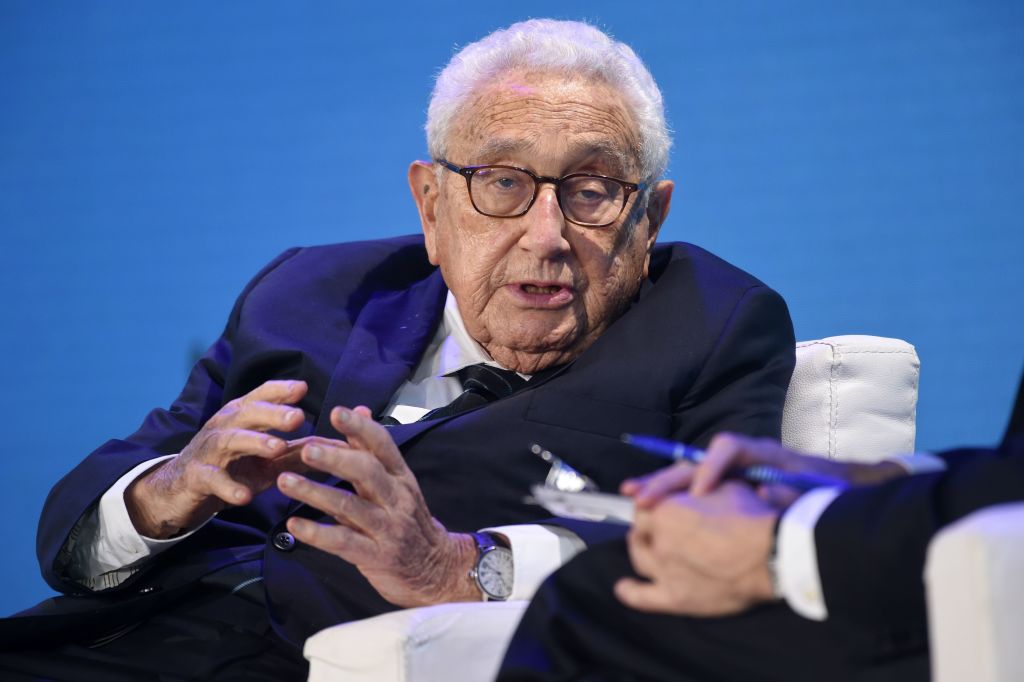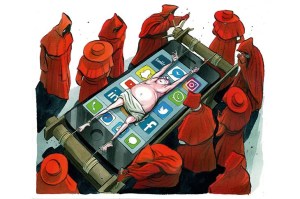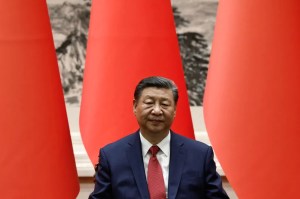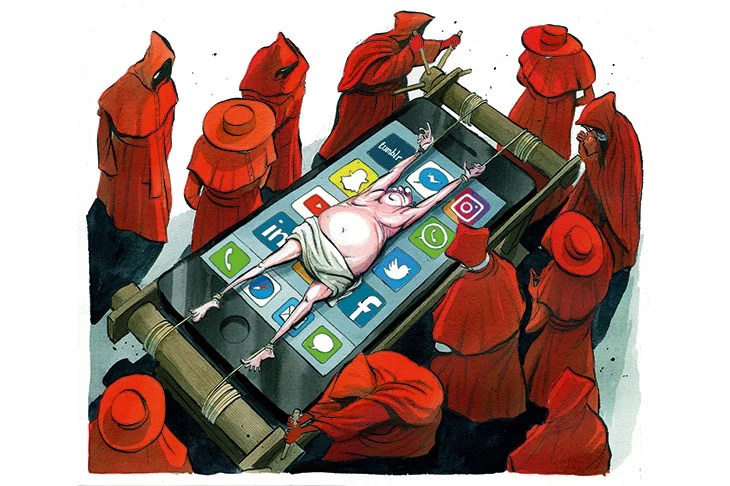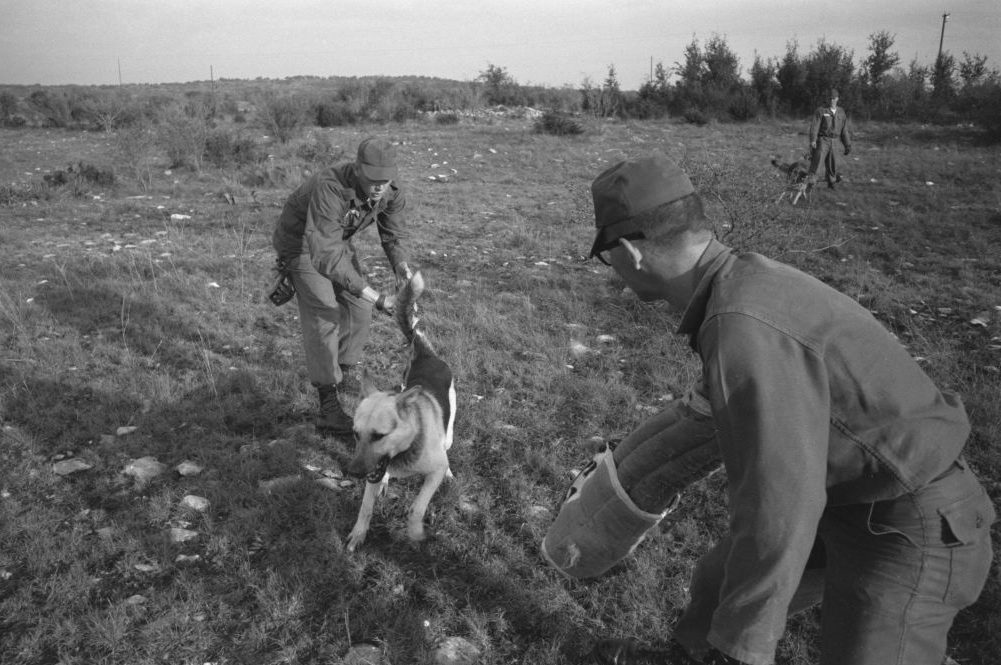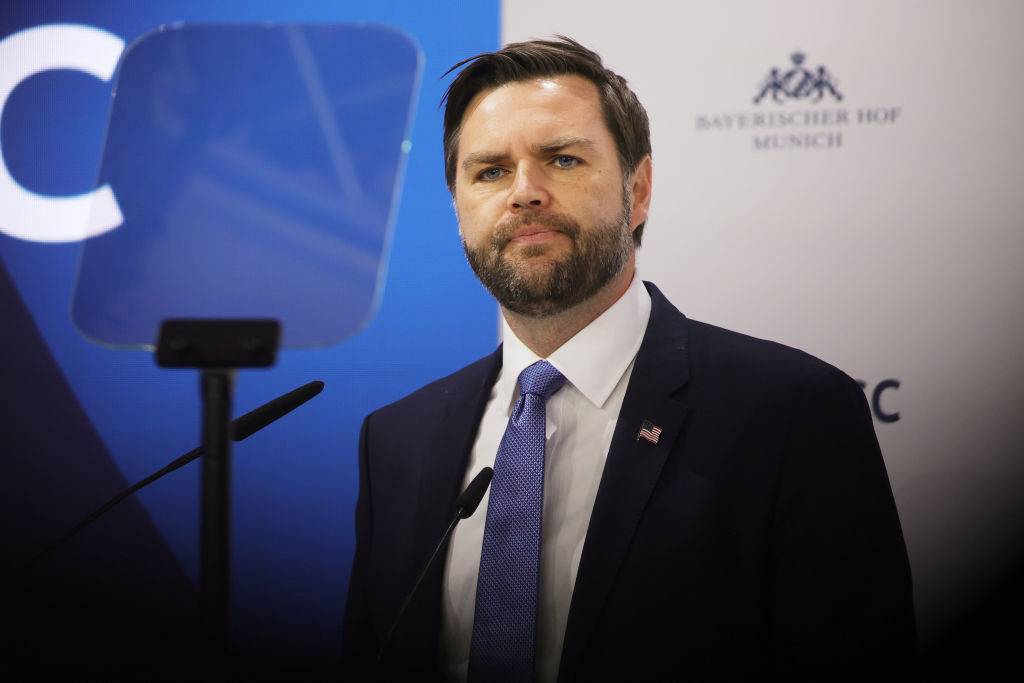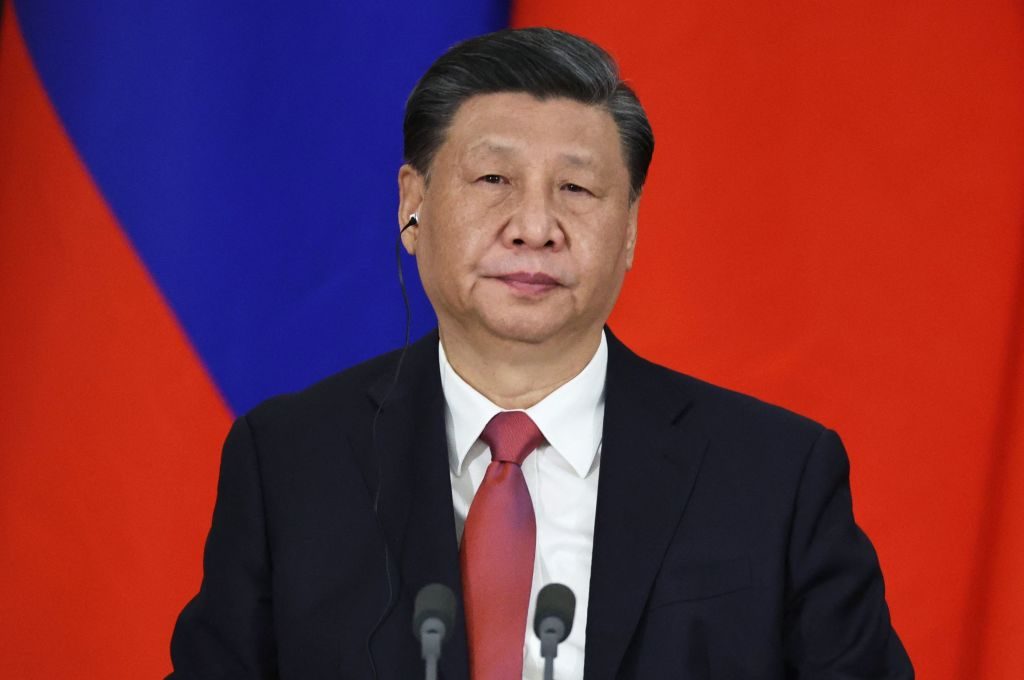Henry Kissinger, now 95 years old, was recently interrupted and abused by New York University students as he attempted to have a public conversation with Mervyn King, the former governor of the Bank of England.
Before the event, 30 student groups, including NYU Against Fascism and Amnesty International at NYU, had demanded that it be cancelled because Kissinger was ‘the morally reprehensible poster child of U.S. militarism and imperialism.’ They seem to have missed the point that he is one of the rare men in public life who has actually risked his life in the fight against fascism.
NYU honorably did not retreat before this attack on free speech, and left-wing trolls came out to abuse and censor.
‘You have blood on your hands,’ ‘You deserve to answer to war crimes,’ ‘You have enacted crimes against Chile, against Argentina, against Cambodia, against Vietnam,’ ‘You are a war criminal and deserve to rot,’ were a few of the insults thrown at him as handcuffs were dangled under his face.
This grotesque and ahistorical attack is by no means the first. In the 2016 presidential campaign, independent socialist candidate Bernie Sanders attacked Hilary Clinton for being a friend of ‘Kissinger, the war criminal of Cambodia.’
I feel some responsibility for the Cambodia part of such attacks. Almost 40 years ago, in 1979, I published a book called Sideshow: Kissinger, Nixon and the Destruction of Cambodia. It was a tough book, based on thousands of pages of US government documents obtained under the Freedom of Information Act and hundreds of interviews. Its argument was that massive US bombing and other careless Nixon-Kissinger White House policies toward Cambodia had created the conditions in which the genocidal communist Khmer Rouge came to power in 1975.
Dr Kissinger had declined my requests for an interview before publication. Had he agreed, I would have included his answers to my accusations. Afterward, his colleague Peter Rodman published a long, detailed critical examination of my book, in which he claimed I had distorted the documents.
I disagreed, and Mr Rodman and I had a lively exchange of views in print. I included that exchange in subsequent paperback editions of Sideshow so that readers could examine the arguments for themselves. Mr Rodman had one sentence in his criticism that particularly resonated with me as an Englishman: ‘If it were not for US power, Mr Shawcross would have grown up speaking German.’
He was absolutely right and I greatly disliked the fact that my book was used on the extreme left as an anti-American tract. Peter Rodman and I subsequently became friends, together we publicly wrote in support of the US surge of troops in Iraq in 2007, and I was much saddened when he died in 2008.
Since Sideshow was published, I have written more than once that ‘those of us who opposed the American war in Indochina should be extremely humble in the face of the appalling aftermath: a form of genocide in Cambodia and horrific tyranny in Vietnam and Laos after the communists defeated the US in 1975.’
Some years ago, I saw Dr Kissinger at an event in London. He stopped to talk to me though his wife, Nancy, strode past. He said, ‘Ah, Mr Shawcross, you see — for me it is the Thirty Years’ War, but for Nancy it will always be the Hundred Years’ War.’
I suspect that Mrs Kissinger thought that I had turned a policy disagreement over Cambodia into a moral crusade, which went on to fuel the ‘war criminal’ accusations that have been made since.
That was not my intention, but she has a point. I regret the tone of the debate that my book helped engender. I stand by the evidence I gathered in Sideshow in the 1970s. But, in the interests of civil debate, I should note that recent enquiries in Cambodia itself suggest that the civilian casualties from the US airstrikes may have been considerably less than appeared to be the case in the 1970s, and repeatedly alleged since without adequate checking of the facts on the ground. If this turns out to be the case, and if I had known it at the time, my Sideshow arguments would have been different.
One must always be assiduous when assessing evidence in such evocative matters, humble in assessing evidence, and especially scrupulous when considering whether or not the evidence truly supports allegations as serious as war crimes.
I do not agree with everything that Kissinger has done, and I imagine there are decisions that he too regrets. But he is an extraordinary man who deserves respect. He came to the US in 1938 as a 15-year-old exile from Nazi Germany, and returned there to fight the Nazis as a young GI in 1944. He wrote to his parents, ‘I feel proud and happy to be able to enter here as a free American soldier.’
Since then nine presidents and many other world leaders have sought his advice – because he has an understanding of history and diplomacy that is unparalleled. Since fighting fascism, he has always believed that the US is the last best hope of the world. He is right.
Those who scream abuse should try to remember that the greater the responsibility a leader possesses, the greater the dilemmas of decision-making.
There are enemies of civilization – Hitler, the Khmer Rouge, Islamist terrorists are a few – who can never be appeased. As Kissinger has always understood, they must be fought and defeated, and that always involves agonizing choices. One should remember Reinhold Niebuhr’s warning that ‘we take and must continue to take morally hazardous actions to preserve our civilization.’
William Shawcross is a senior research fellow at Policy Exchange, working on anti-Semitism and anti-Muslim prejudice.
This article was originally published on Real Clear Politics.



